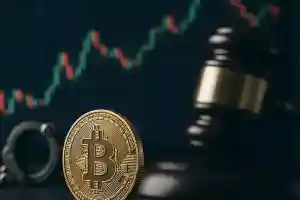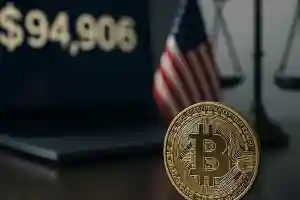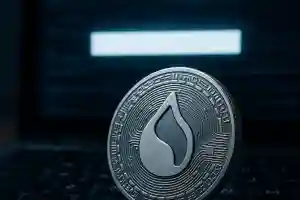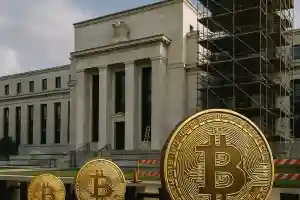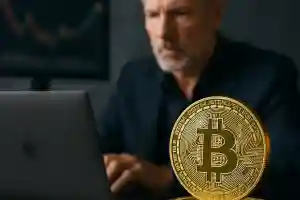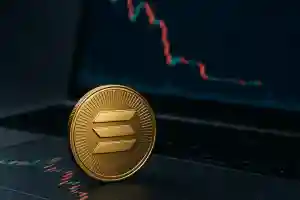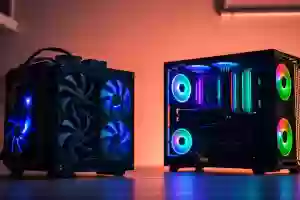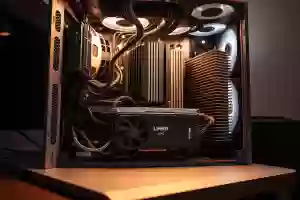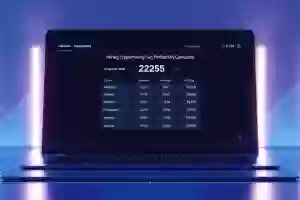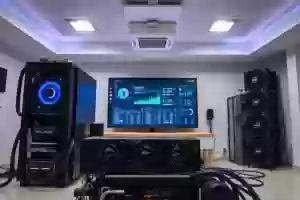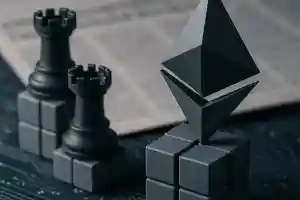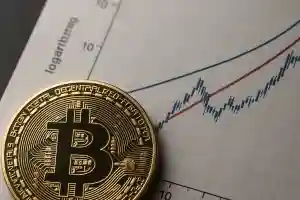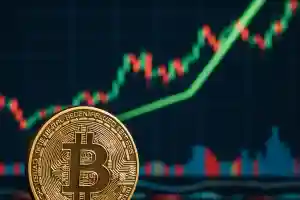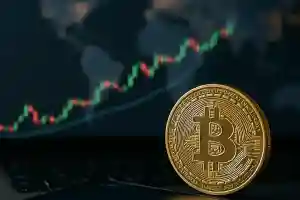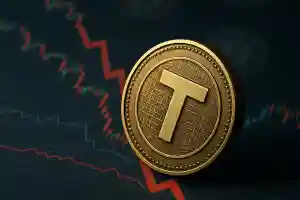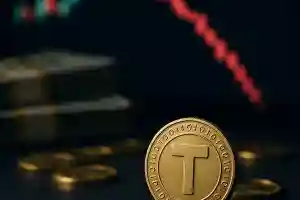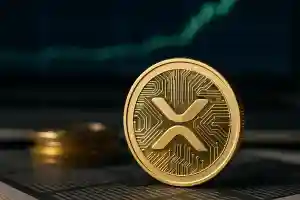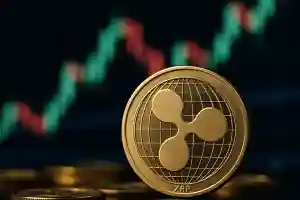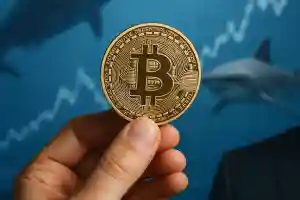Discover the World of Decentralized Finance
 03 Mar 25
03 Mar 25
Welcome to the future of money management, where technology meets opportunity. Decentralized finance, or DeFi, is revolutionizing how we think about financial transactions. By leveraging blockchain technology, DeFi eliminates the need for traditional intermediaries, creating a more direct and efficient way to manage your finances.
At its core, DeFi uses smart contracts on permissionless blockchains to facilitate peer-to-peer transactions. This means no banks, no intermediaries, just a secure, transparent network that puts you in control. Whether you're lending, borrowing, or trading, DeFi offers a more accessible and efficient alternative to traditional financial systems.
Blockchain technology is the backbone of this new financial paradigm. It ensures that every transaction is recorded securely and transparently, reducing the risk of fraud and building trust among users. With DeFi, the concept of money and account management is being redefined, offering a more user-centric experience.
As this ecosystem grows, so do the opportunities. From exchange platforms to innovative applications, DeFi is paving the way for a more inclusive and secure financial future. Join us as we explore this transformative shift in the world of finance.
An Introduction to the World of Decentralized Finance
Step into a financial landscape where technology and innovation converge to create new opportunities. Decentralized finance, or DeFi, represents a significant shift in how financial services are delivered. By cutting out traditional intermediaries, DeFi offers a more direct and efficient way to manage your assets.
At the heart of DeFi are peer-to-peer transactions, made possible by decentralized applications. These transactions are faster and incur lower fees compared to traditional methods. Smart contracts play a crucial role here, automating processes without the need for a central authority. This automation ensures transparency and reduces the risk of fraud.
DeFi's importance lies in its accessibility. Platforms like Uniswap and Aave provide services that were once exclusive to banks, such as lending and trading. Users can engage directly through digital wallets, eliminating the need for intermediaries. This decentralized approach not only lowers costs but also opens up financial opportunities to those traditionally underserved by banks.
Cryptocurrency and tokens are key enablers of DeFi, facilitating seamless transactions across the globe. This ecosystem contrasts sharply with traditional financial systems, offering a more user-centric and efficient experience. As DeFi continues to grow, it's reshaping the future of financial services, making them more inclusive and accessible for everyone.
The Evolution of Decentralized Finance
The journey of decentralized finance has been marked by groundbreaking innovations and transformative milestones. From its humble beginnings to its current robust ecosystem, DeFi has evolved significantly, driven by technological advancements and growing market interest.
Historical Milestones and Growth
Early pioneers like MakerDAO and Compound Finance played a pivotal role in shaping the DeFi landscape. They introduced stablecoins and yield farming, attracting significant interest and investment. These innovations not only expanded the ecosystem but also laid the foundation for a wide range of financial products.
Emergence of Blockchain and Smart Contracts
Blockchain technology and smart contracts have been instrumental in revolutionizing traditional financial systems. By enabling peer-to-peer transactions and automating processes, these technologies have reduced costs and increased efficiency. Smart contracts, in particular, have eliminated the need for intermediaries, ensuring transparency and security in every transaction.

As the ecosystem matured, platforms like Uniswap and Aave emerged, offering lending, trading, and other financial services. These platforms demonstrated the potential of DeFi to create a more inclusive and accessible financial system. The growth of the ecosystem has been further fueled by the increasing adoption of cryptocurrency and the development of new financial products.
However, the rapid evolution of DeFi has also introduced new risks. The complexity of smart contracts and the lack of regulation have led to challenges such as security vulnerabilities and market volatility. Despite these risks, the DeFi ecosystem continues to grow, driven by innovation and the increasing demand for decentralized financial solutions.
Core Technologies Powering Decentralized Finance
At the heart of this financial revolution lies a robust suite of technologies that ensure security, transparency, and efficiency. Blockchain and smart contracts are the pillars that support this new financial landscape, enabling peer-to-peer transactions without intermediaries.
Blockchain Foundations and Security
Blockchain technology provides a tamper-proof ledger, recording every transaction securely and transparently. This decentralized ledger is maintained by a network of computers, ensuring that no single entity controls the data. Encryption and consensus mechanisms protect user data and funds, making it nearly impossible for unauthorized access or fraud.
Key security features include:
- Distributed ledgers for transparency
- Advanced encryption for data protection
- Consensus mechanisms to validate transactions
Smart Contracts and Automated Applications
Smart contracts are self-executing agreements written in code, automating financial processes without intermediaries. They trigger actions once predefined conditions are met, ensuring reliability and efficiency. Platforms like Ethereum host these contracts, enabling applications that manage assets and transactions seamlessly.
| Feature | Traditional Systems | DeFi |
|---|---|---|
| Intermediaries | Required for transactions | Eliminated through smart contracts |
| Transaction Speed | Slow, depending on systems | Fast, near real-time |
| Fees | High, due to intermediaries | Low, automated processes |
| Security | Centralized, vulnerable | Decentralized, robust |
These technologies not only minimize fees and enhance efficiency but also foster trust through public verification of assets and transactions. As DeFi evolves, continuous innovation is crucial to manage risks and ensure the ecosystem remains secure and accessible for all users.
Opportunities and Risks in the DeFi Ecosystem
The DeFi ecosystem offers a transformative vision for modern finance, blending innovation with accessibility. While it presents remarkable opportunities, it also comes with unique challenges that require careful consideration.
Advantages and Innovative Uses
DeFi platforms have opened doors to new financial services, enabling users to engage in peer-to-peer lending, yield farming, and trading without intermediaries. These services are faster, more transparent, and often more cost-effective than traditional banking. For instance, decentralized exchanges (DEXs) like Uniswap have revolutionized how cryptocurrencies are traded, offering lower fees and greater accessibility.
Yield farming has emerged as a popular way for users to earn returns by providing liquidity to DeFi platforms. This innovative approach not only benefits individuals but also strengthens the ecosystem by ensuring ample liquidity for transactions. Additionally, the rise of decentralized applications (dApps) has introduced new business models, creating opportunities for entrepreneurs and developers alike.
Risks, Hacks, and Regulatory Challenges
Despite its potential, the DeFi ecosystem is not without risks. Smart contract vulnerabilities have led to significant hacks, resulting in millions of dollars in losses. For example, the 2021 Poly Network hack highlighted the fragility of some DeFi platforms. Regulatory scrutiny further complicates the landscape, as governments worldwide grapple with how to oversee these decentralized systems.
Market volatility is another critical concern. Cryptocurrency prices can fluctuate rapidly, leading to liquidity crises and investment losses. Moreover, the lack of robust regulatory frameworks leaves users with limited recourse in case of disputes or losses. These challenges underscore the importance of caution and diligence when engaging with DeFi platforms.
"The DeFi ecosystem is a double-edged sword, offering unparalleled opportunities but also harboring significant risks. Understanding both is crucial for anyone looking to participate."
As DeFi continues to evolve, addressing these risks through improved security measures, regulatory clarity, and user education will be essential. By doing so, the ecosystem can realize its full potential and provide a more inclusive and resilient financial future.
Investing and Participating in Decentralized Finance
Investing in decentralized finance offers exciting opportunities, but it requires careful consideration. Here's how you can get started:
Investment Strategies and Yield Farming
To participate in DeFi, consider these methods:
- Staking: Earn rewards by holding and locking up cryptocurrencies.
- Yield Farming: Provide liquidity to platforms in exchange for interest.
- Lending: Loan out crypto assets to earn interest.
Regulatory Considerations in the United States
While DeFi offers high returns, it's largely unregulated in the U.S., posing risks. Ensure you understand the regulatory environment before investing.

For more information on decentralized finance, visit Fidelity's guide.
Conclusion
As we conclude our exploration of the transformative potential of decentralized finance, it’s clear that this emerging ecosystem is reshaping the future of money and financial services. By harnessing the power of blockchain and smart contracts, DeFi offers a more efficient, transparent, and accessible way to manage transactions, lending, and trading.
While the benefits are undeniable, lower fees, faster processing, and reduced reliance on intermediaries, the risks cannot be overlooked. Market volatility, regulatory uncertainties, and security challenges require careful consideration. Staying informed and conducting thorough research are essential for anyone looking to engage with this dynamic ecosystem.
Despite these challenges, the innovation driving DeFi is undeniable. From yield farming to decentralized exchanges, the opportunities for growth and financial inclusion are vast. As the ecosystem evolves, continued innovation and education will be key to navigating its potential and risks.
Looking ahead, the future of DeFi is promising. With ongoing advancements in blockchain technology and a growing emphasis on security, this space is poised to create lasting change. By embracing this shift with knowledge and caution, we can unlock the full potential of decentralized finance and build a more resilient financial future for all.
FAQ
What is decentralized finance, and how does it work?
Decentralized finance, or DeFi, is a financial system that operates on blockchain technology. It eliminates the need for traditional intermediaries like banks, allowing users to manage assets, loans, and transactions directly through peer-to-peer networks. This decentralized approach enhances security, transparency, and accessibility for everyone involved.
What are smart contracts, and why are they important in DeFi?
Smart contracts are self-executing agreements written in code. They automatically carry out the terms of a contract when specific conditions are met. In DeFi, smart contracts enable trustless transactions, streamline processes, and reduce the need for intermediaries, making financial services more efficient and secure.
How do I keep my cryptocurrency assets safe in a DeFi platform?
To secure your crypto assets, use reputable wallets like MetaMask or Ledger, enable two-factor authentication, and avoid sharing your private keys. Additionally, research the platform thoroughly and ensure it has a strong track record of security and transparency.
Can I earn interest on my cryptocurrency holdings?
Yes, through yield farming or staking, you can earn interest on your crypto holdings. These methods allow you to lend your assets to others, earning rewards in return. This is a popular way to generate passive income within the DeFi ecosystem.
What are the main risks involved in using DeFi services?
While DeFi offers many opportunities, it also comes with risks such as smart contract vulnerabilities, market volatility, and potential regulatory changes. It's important to educate yourself and only invest what you can afford to lose.
How do I get started with DeFi?
Start by learning the basics of blockchain and cryptocurrency. Choose a reliable wallet, research DeFi platforms, and begin with small transactions to familiarize yourself with the ecosystem. Always prioritize security and caution when interacting with new platforms.
